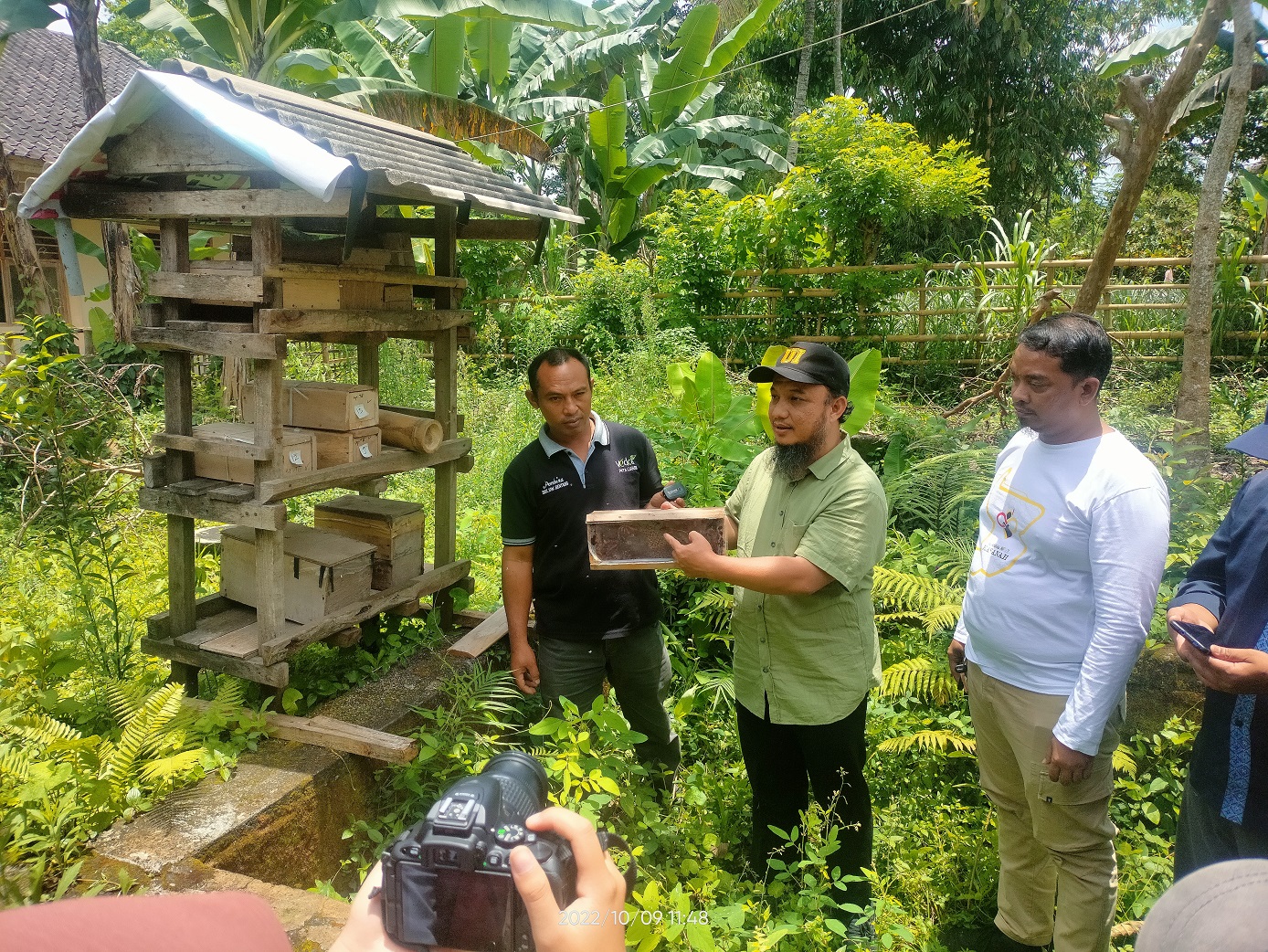Lombok Island is one of the areas with great potential in developing trigona bee cultivation (no stinging bees are currently starting to be popular with the public) with the two most popular products, honey, and propolis. with properties that are beneficial to the human body, so the development of trigona bee cultivation continues to be encouraged to increase the positive impact on the community and improve the economy of the community around East Lombok.
Lecturer of the Faculty of Engineering, University of Indonesia (FTUI), Dr. Muhammad Sahlan, S.Si., M.Eng with the UI Community Service and Empowerment Team introduced two trigona bee box innovations in several East Lombok Islamic boarding schools, namely the Zainuddin At-Sani Islamic Boarding School and the Al-Ihsani NW Dasan Baru Islamic Boarding School in the Masbagik area, East Lombok. . This community service program aims to help the pesantren environment such as cooperatives, teachers, and students to take part in the development of trigona bees, to increase the productivity and business income of Islamic boarding schools in Masbagik, East Lombok.
Natural conditions in East Lombok which have various vegetation types support trigona bees’ development. “This non-stinging bee is very suitable to be cultivated in Islamic boarding schools because it does not sting and does not need to be “stung” or maintained, it does not need to be moved from place to place so that students can still move/study at the Islamic boarding school and check the bees at the same time. In addition, the development of trigona bee biopharmaceuticals does not require much cost and is practical,” said Dr. Sahlan.
The development of biopharmaceuticals referred to by Sahlan is by utilizing the use of a rooster in the cultivation process, with a rooster having a low price and easy to obtain by students (ranging from Rp. 5000 – Rp. 7000). In addition, other innovations offered are related to the process of harvesting trigona bee honey which is very practical, without killing the non-stinging bees, so that the students can more easily harvest trigona bee honey.
With the theme “Processing and Economic Utilization of Trigona Bee Biofarming”, Dr. Sahlan led the discussion with the two pesantren. The participants who came from the two pesantren were enthusiastic to discuss and consult regarding the obstacles experienced during trigona bee cultivation in their respective pesantren. The discussions included colony placement techniques, keeping the colonies productive in producing honey, and how to harvest honey through tools and manually.
In addition to training through discussion sessions, the UI Community Service and Empowerment Team also provided entrepreneurship assistance for Trigona honey bee cultivation which was guided by one of the honey bee cultivation entrepreneurs in Lombok as a practitioner mentor, namely Hasan Asari, S.Pt (Hasanah Lombok Honey Barn Entrepreneur) with demonstrate and practice together for the breakdown of Trigona honeybee colonies.
Muhammad Faizin, as a participant and representative of the Zainuddin At-Sani Islamic Boarding School, was very enthusiastic about the discussion and training related to the processing of this trigona bee. “We are very happy and grateful to the University of Indonesia, who came all the way to help the development of the trigona bee. Hopefully, the results from this cultivation can be sold in school cooperatives and provide benefits,” said Muhammad Faizin.
***
Public Communication Bureau
Faculty of Engineering, Universitas Indonesia

